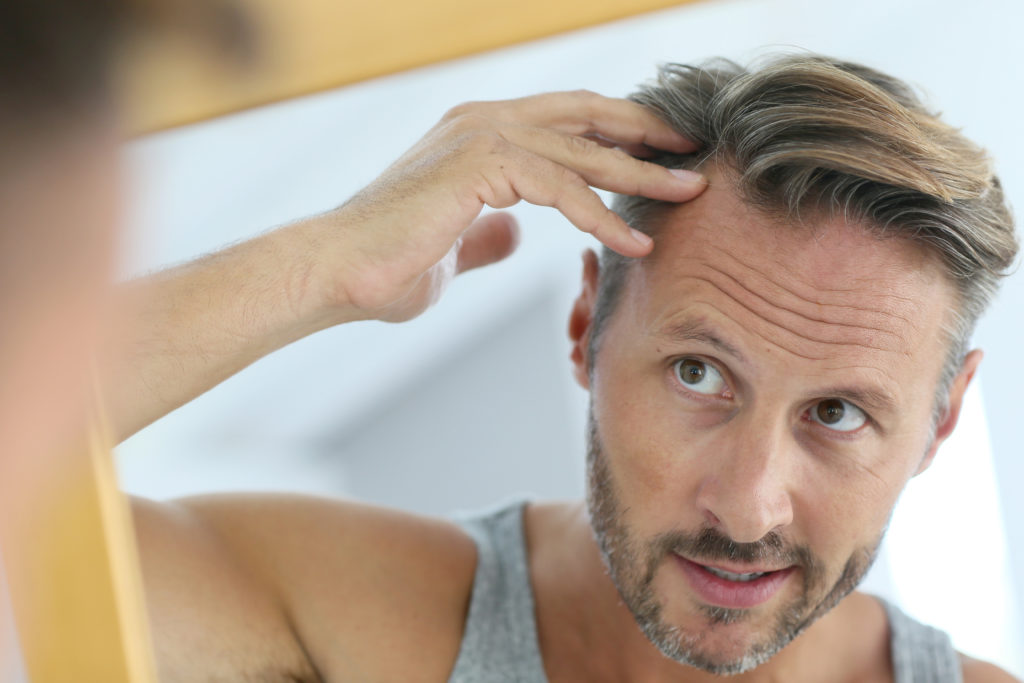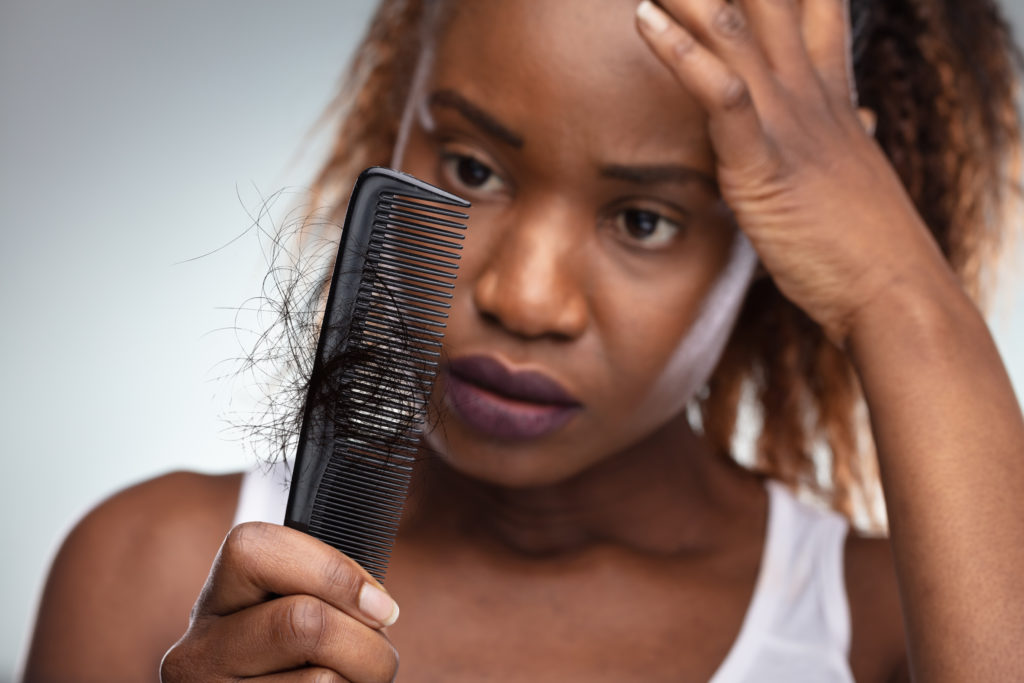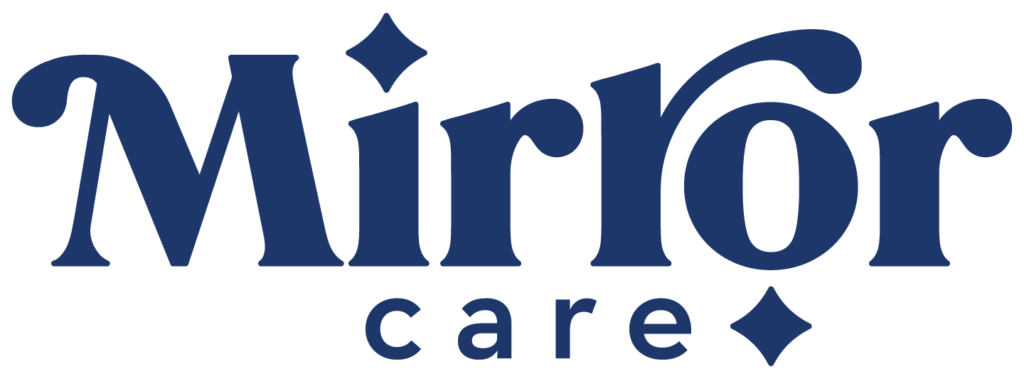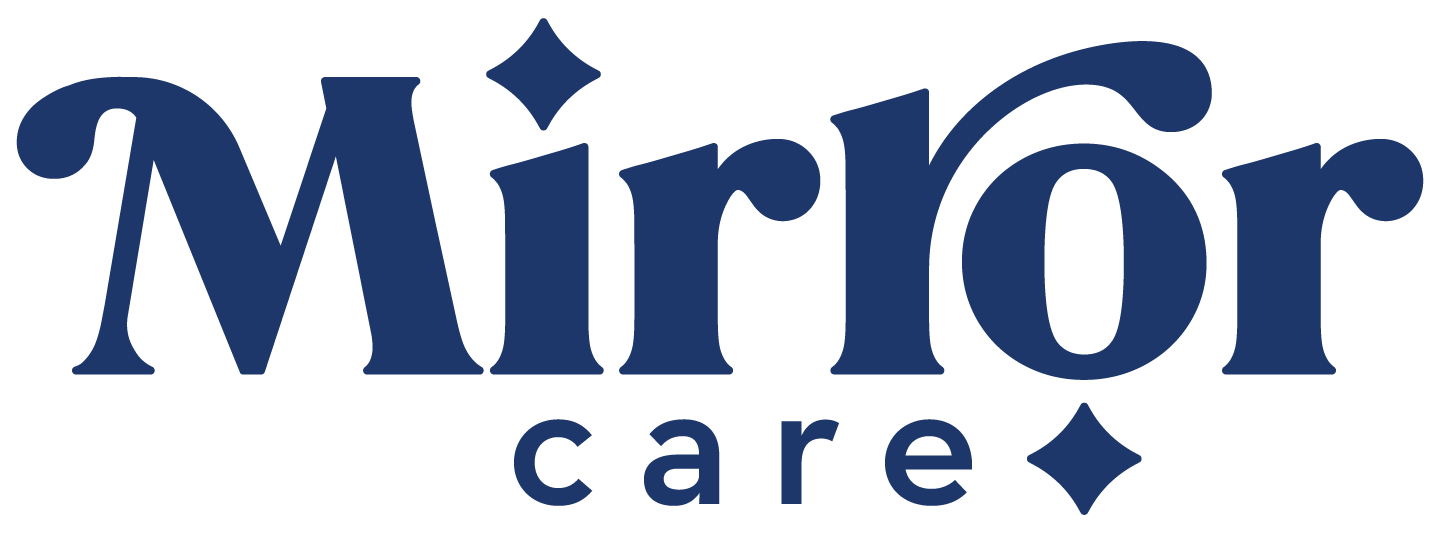Our Hair is Important
Did you know that your hair is key in regulating your body temperature, protecting your body, and extending your sense of touch? Your hair keeps you warmer during the winter, cooler during the summer, protects your skin from the sun’s harmful UV rays, and minimizes foreign objects from getting into sensitive places (e.g., the role of your eyelashes and eyes). Your hair is also one of your most distinguishing features and identifies you!
Unfortunately, as we age that thick, luscious head of hair we had when we were younger can start to disappear. You may notice that your hair is growing more slowly, thinning, or that you’re even losing hair.
Why do we experience these hair loss symptoms? What role do our hormones play in helping us maintain healthy hair? Can we fight or even reverse hair thinning and loss?

Structure of Our Hair
Hair is a protein filament, composed of keratin, that grows from follicles residing in the dermal layer of our skin. The hair follicle for each hair on our body regulates hair growth through a four-phase cycle: growth, transition, resting, and shedding. Typically, at any given time, up to 90% of the hair on our scalp is in the growth phase.
Our hair follicles and hair growth are heavily influenced by our hormones, including androgens, which are sex steroid hormones that can cause hair follicles on the scalp to shrink. Over time, the shrinking of the hair follicles can lead to hair loss.
Hormone Fluctuations From Female and Male Menopause
Menopause occurs for both women and men (known as andropause), and results in fluctuating hormone levels that directly impact the health of our hair. We may experience some of the same symptoms, including hair loss, for years leading up to menopause, or during different periods of our lives, depending on our hormones.
For women, menopause typically occurs in the late 40s and early 50s, during which decreased production of estrogen and progesterone drive thinning hair. Over time, this decrease can lead to higher androgen activity, which shrinks the hair follicles and promotes hair loss. Additionally, higher androgen activity can increase facial hair growth.
For men, andropause is not as well defined from an age perspective and does not affect everyone, but it does come with the similar hormonal changes that women experience. Testosterone levels drop and androgen activity rises, again leading to shrinking hair follicles and hair loss.

Enter Natural Bioidentical Hormones
Bioidentical Hormone Replacement Therapy (BHRT) can address these symptoms of aging and hair loss by optimizing your hormone levels. Through BHRT, hormones such as estradiol, progesterone, testosterone, thyroid, and melatonin can be optimized to support hair follicle growth. These natural hormones inhibit androgen activity, decrease the conversion of testosterone to dihydrotestosterone, promote hair pigmentation, stimulate the growth phase of hair follicles, and regulate (directly and indirectly) hair growth.
Other Impacts on Our Hair
While hormones play a critical role in the health of your hair, there are other factors that can positively impact your hair, including:
- Eat healthy – foods high in vitamin A, vitamin C, iron, and protein (spinach, berries, eggs, chicken) help prevent hair thinning and loss
- Drink water – hair becomes dryer and thinner as we age, but more water can help fight that dryness
- Exercise regularly – a key component of overall health that improves circulation (directly impacting blood flow to hair follicles), reduces stress, and improves symptoms associated with meno- or andropause
- Reduce stress – high stress levels can impact health regardless of age and lead to accelerated hair loss
There are a number of ways to combat thinning and losing hair, and you don’t have to accept the speed of aging and symptoms that come with it. If you’re starting to experience hair thinning, hair loss, meno- or andropause, BHRT may be right for you.
How Can We Help?
Legal and Privacy
Quick Contacts
- (630) 884-4449
- Questions@mirror.care
-
Mirror Care Pharmacy 17W535 Butterfield Rd Suite 001
Oakbrook Terrace, IL 60181
Receive Updates from Mirror Care
- Copyright 2026 Self Therapeutics, LLC


Leave a Reply